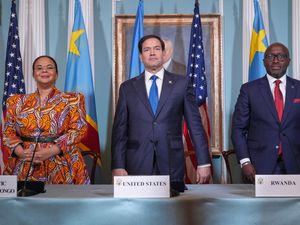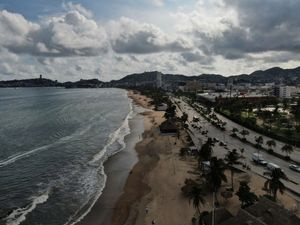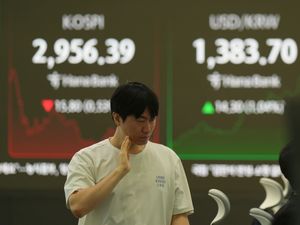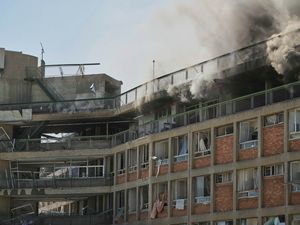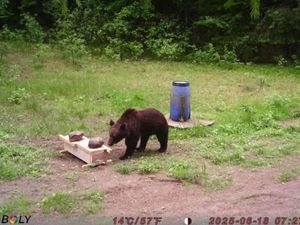Warning on Iran nuclear obligations as further US talks planned
The International Atomic Energy Agency called on Iran to provide answers in a long-running investigation into uranium traces found at several sites.
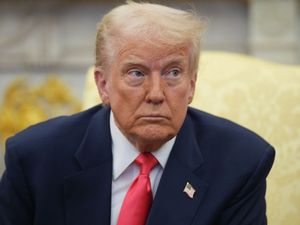
The UN nuclear watchdog has formally found that Iran is not complying with its nuclear obligations for the first time in 20 years, a move that could lead to further tensions and set in motion an effort to restore sanctions on Tehran later this year.
Iran reacted immediately by saying it will establish a new enrichment facility after the vote against it.
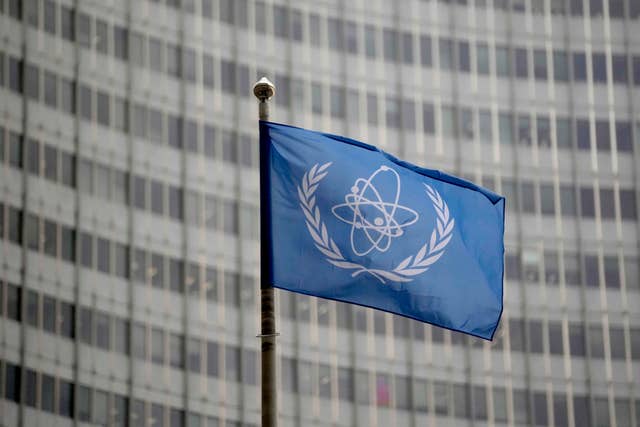
The announcement said the facility will be “in a secure location” and that “other measures are also being planned”.
“The Islamic Republic of Iran has no choice but to respond to this political resolution,” the Iranian foreign ministry and the Atomic Energy Organisation of Iran said in a joint statement.
US President Donald Trump previously warned that Israel or America could carry out airstrikes targeting Iranian nuclear facilities if negotiations failed — and some American personnel and their families have begun leaving the region over the tensions, which come ahead of a new round of Iran-US talks Sunday in Oman.
In Israel, the US Embassy ordered American government employees and their families to remain in the Tel Aviv area over security concerns.
Nineteen countries on the International Atomic Energy Agency’s (IAEA) board, which represents the agency’s member nations, voted for the resolution, according to diplomats who spoke on condition of anonymity.
Russia, China and Burkina Faso opposed it, 11 abstained and two did not vote.
In the draft resolution seen by The Associated Press, the board of governors renewed a call on Iran to provide answers “without delay” in a long-running investigation into uranium traces found at several locations that Tehran has failed to declare as nuclear sites.
Western officials suspect the uranium traces could provide evidence that Iran had a secret nuclear weapons programme until 2003.
The resolution was put forward by France, the UK, Germany and the United States.
Speaking to Iranian state television after the vote, the spokesman for the Atomic Energy Organisation of Iran said that his agency immediately informed the IAEA of “specific and effective” actions Tehran would take.
“One is the launch of a third secure site” for enrichment, spokesman Behrouz Kamalvandi said.
He did not elaborate on the location, but the organisation’s chief, Mohammad Eslami, later described the site as “already built, prepared, and located in a secure and invulnerable place”.
Iran has two underground sites at Fordo and Natanz and has been building tunnels in the mountains near Natanz since suspected Israeli sabotage attacks targeted that facility.
The other step would be replacing old centrifuges for advanced ones at Fordo.
“The implication of this is that our production of enriched materials will significantly increase,” Mr Kamalvandi said.
“Iran’s many failures to uphold its obligations since 2019 to provide the agency with full and timely co-operation regarding undeclared nuclear material and activities at multiple undeclared locations in Iran … constitute non-compliance with its obligations under its safeguards agreement,” the draft resolution says.
Under the so-called safeguards obligations, which are part of the nuclear non-proliferation treaty, Iran is legally bound to declare all nuclear material and activities, and allow IAEA inspectors to verify that none of it is being diverted from peaceful uses.
The draft resolution also finds that the IAEA’s “inability … to provide assurance that Iran’s nuclear programme is exclusively peaceful gives rise to questions that are within the competence of the United Nations Security Council, as the organ bearing the main responsibility for the maintenance of international peace and security”.
The draft resolution makes a direct reference to the US-Iran talks, stressing its “support for a diplomatic solution to the problems posed by the Iranian nuclear programme, including the talks between the United States and Iran, leading to an agreement that addresses all international concerns related to Iran’s nuclear activities, encouraging all parties to constructively engage in diplomacy”.
A senior Western diplomat last week described the resolution as a “serious step,” but added that Western nations are “not closing the door to diplomacy on this issue”.
However, if Iran fails to co-operate, an extraordinary IAEA board meeting will likely be held in the summer, during which another resolution could be passed that will refer the issue to the Security Council.
The three European nations have repeatedly threatened in the past to reinstate, or “snap back”, sanctions that have been lifted under the original 2015 Iran nuclear deal if Iran does not provide “technically credible” answers to the UN nuclear watchdog’s questions.
In a joint statement to the IAEA board of governors, the three European nations said that they would “spare no efforts to work towards a diplomatic solution” but added that without a satisfying deal, they would “consider triggering the snapback mechanism to address threats to international peace and security arising from Iran’s nuclear program”.
The authority to re-establish those sanctions by the complaint of any member of the original 2015 nuclear deal expires in October, putting the West on a clock to exert pressure on Tehran over its program before losing that power.
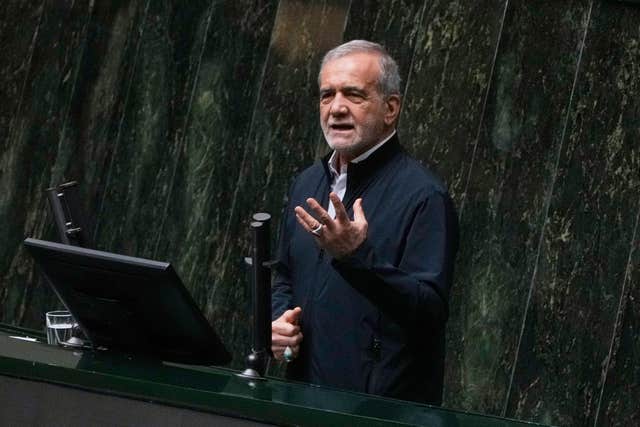
The resolution follows the IAEA’s so-called “comprehensive report” that was circulated among member states last weekend. In the report, the UN nuclear watchdog said that Iran’s co-operation with the agency has “been less than satisfactory” when it comes to uranium traces discovered by agency inspectors at several locations in Iran.
One of the sites became known publicly in 2018, after Israeli Prime Minister Benjamin Netanyahu revealed it at the United Nations and called it a clandestine nuclear warehouse hidden at a rug-cleaning plant.
Iran denied this, but in 2019, IAEA inspectors detected the presence of uranium traces there as well as at two other sites.
Iran’s President Masoud Pezeshkian, who campaigned on reaching out to the West, struck a harder line after the IAEA vote.
“I don’t know how to co-operate with the outside world to stop them from doing evil acts and let the people live independently in this country,” Mr Pezeshkian said. “We will continue down our own path; we will have enrichment.”

